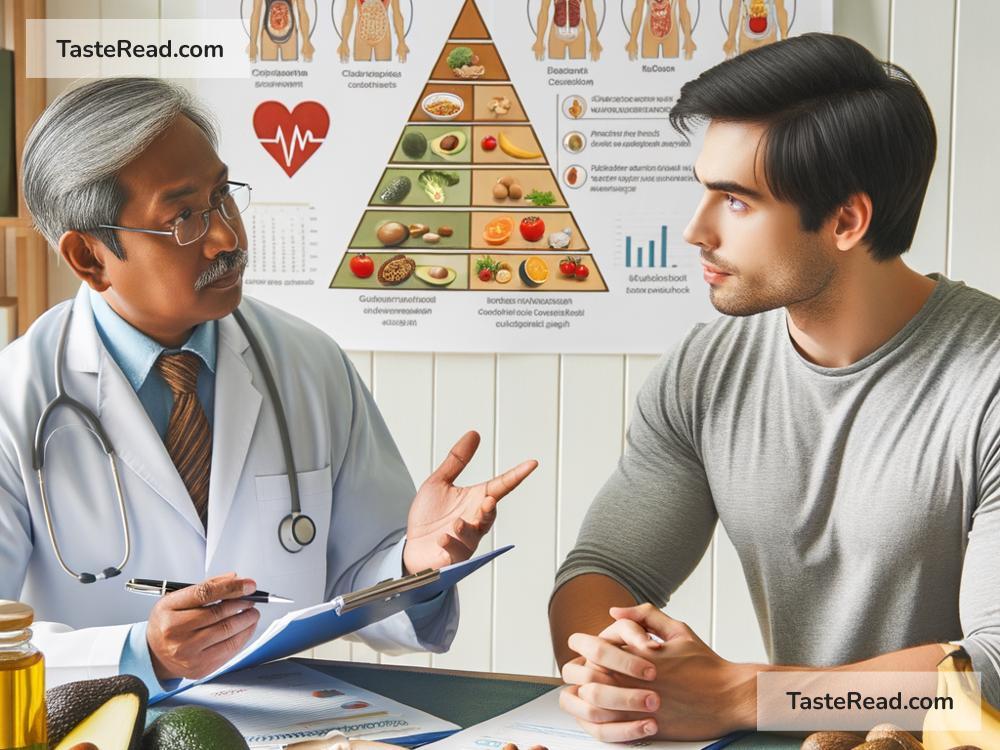Understanding the Role of Cholesterol in Health
When people hear the word “cholesterol,” many think of something bad for their health. The truth is more complicated. Cholesterol is essential for your body, but too much of it can lead to problems like heart disease. So, what exactly is cholesterol, and why does it matter? Let’s dive into the basics of cholesterol to better understand its role in health. Don’t worry, we’ll keep it simple!
What Is Cholesterol?
Cholesterol is a waxy, fat-like substance found in your blood. Your body actually makes its own cholesterol! The liver produces it because your body needs cholesterol for vital functions like building cells and making hormones such as estrogen or testosterone. Cholesterol also helps your body produce vitamin D and substances that aid digestion, like bile acids.
Sounds important, right? It is. Cholesterol is like the “building material” your body uses for many tasks. But here’s the catch—it can be harmful if you have too much of it.
Good vs. Bad Cholesterol
Cholesterol travels through your body in little carriers called lipoproteins. These are like tiny trucks that move cholesterol where it needs to go. There are two major types of cholesterol, often nicknamed “good” and “bad” cholesterol. Let’s break them down:
-
Low-Density Lipoprotein (LDL)
LDL is often called “bad cholesterol.” Think of it like the delivery truck that drops cholesterol off at different parts of your body. If there’s too much LDL, it can stick to the walls of your arteries. Over time, this build-up forms plaques, which make your arteries narrow and less flexible. When this happens, blood flow becomes restricted, increasing the risk of heart attacks and strokes. -
High-Density Lipoprotein (HDL)
HDL is known as “good cholesterol.” Unlike LDL, HDL acts more like a recycling truck. It picks up excess cholesterol in your bloodstream and carries it back to the liver, where it can be broken down and removed from your body. A higher level of HDL is generally a good thing because it helps keep your arteries clean and lowers the risk of heart disease.
Where Does Cholesterol Come From?
Your body produces all the cholesterol it needs, but extra cholesterol comes from food. Foods high in saturated fats and trans fats can increase your cholesterol levels. Common cholesterol-raising foods include fried snacks, fatty meats, butter, and heavily processed foods like cookies and cakes.
But not all fats are bad! Unsaturated fats, found in foods like nuts, seeds, avocados, and olive oil, can help improve your cholesterol levels. These healthy fats can boost your HDL (good cholesterol) while reducing your LDL (bad cholesterol).
Why Does Cholesterol Matter for Your Health?
Cholesterol itself isn’t harmful—it’s essential for your body to work properly. The problem arises when cholesterol levels become imbalanced. High levels of LDL (bad cholesterol) combined with low levels of HDL (good cholesterol) create a risky situation for your heart and arteries.
Here’s how the damage happens: When LDL cholesterol builds up in your arteries, it forms plaques. These plaques harden and narrow your arteries over time, leading to a condition called atherosclerosis. Narrow arteries make it harder for blood to flow. If a plaque breaks off, it can form a blood clot. A clot in a coronary artery can cause a heart attack, while a clot in an artery leading to the brain could cause a stroke.
How Can You Keep Cholesterol Levels Healthy?
The good news is that you can control your cholesterol levels through lifestyle choices and, if necessary, medication prescribed by your doctor. Here are some simple ways to keep your cholesterol in check:
-
Eat Heart-Healthy Foods
Focus on foods that promote good cholesterol levels. Include plenty of fruits, vegetables, whole grains, and healthy fats like olive oil, nuts, and fish high in Omega-3 fatty acids. Cut back on foods high in saturated fat, trans fat, and cholesterol, such as fried foods and processed snacks. -
Exercise Regularly
Being physically active boosts your HDL (good cholesterol) while lowering your LDL (bad cholesterol). Even moderate exercises like brisk walking, biking, or dancing can make a big difference. -
Maintain a Healthy Weight
Excess weight can raise your LDL levels while lowering HDL levels. Losing even a small amount of weight can help improve your cholesterol numbers. -
Quit Smoking
Smoking lowers your HDL cholesterol and damages your arteries. Quitting smoking not only improves your cholesterol levels but also benefits your overall health. -
Limit Alcohol
Drinking too much alcohol can increase cholesterol and triglyceride levels. If you drink, keep it moderate—no more than one drink per day for women and two drinks per day for men.
Check Your Cholesterol Levels
Cholesterol levels don’t cause noticeable symptoms, so many people don’t know they have high cholesterol until a problem arises, like a heart attack. That’s why regular check-ups are important. A blood test, often called a “lipid panel,” measures your cholesterol levels, including LDL, HDL, and triglycerides (another type of fat in your blood).
Doctors use these numbers to evaluate your risk of heart disease. If your levels are too high, your doctor might suggest lifestyle changes or medications to lower them.
Conclusion
Cholesterol isn’t a villain—it’s actually an essential substance your body needs. The key is balance. Too much bad cholesterol (LDL) can harm your health, while good cholesterol (HDL) helps protect your heart and arteries. By making smart food choices, exercising regularly, and visiting your doctor for routine check-ups, you can take control of your cholesterol and boost your chances for a long, healthy life. Remember, simple changes can lead to big results!


